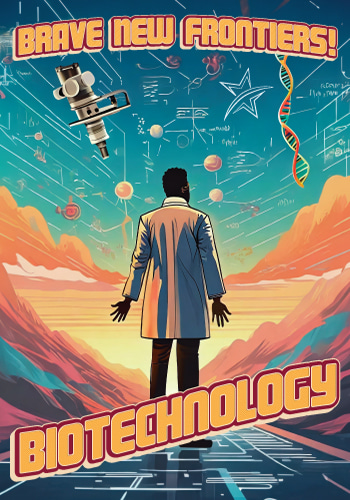A Path to a Meaningful Career: Biotechnology Laboratory Technician
Our mission is to prepare students for careers as skilled Biotechnology Laboratory Technicians through hands-on, industry-relevant training.
Students gain practical experience in:
- Basic laboratory techniques
- Genetic engineering
- Protein purification
- Cell culture
- Bioinformatics
- Quality assurance & quality control (QA/QC)
- Electronic lab documentation
- Laboratory ethics and teamwork
Graduates are well-prepared for a wide range of roles in industries such as:
- Biopharmaceuticals manufacturing
- Molecular diagnostics
- Research and development
- Cell culture
- Biomanufacturing
To find out more about the Biotechnology Laboratory Technician career path, click here.
Biotechnology Degrees and Certificates at LSC–Montgomery
The LSC–Montgomery Biotechnology Program offers two educational pathways:
Associate of Applied Science (AAS) Degree: This two-year program prepares students for careers as biotechnology laboratory technicians and includes general education courses that transfer to four-year universities, such as:
- University of Houston–Downtown
- Stephen F. Austin State University
- UT M.D. Anderson Cancer Center School of Health Professions
Advanced Technical Certificate (ATC): Designed for students who already hold a degree, the ATC focuses entirely on biotechnology coursework and provides the same hands-on skills needed for technician roles.
To find out more about our program, click here.
About Biotechnology
The term biotechnology was first coined in 1919 by Hungarian engineer Karl Ereky to describe the use of living organisms in producing useful products.
By the mid-20th century, scientists made groundbreaking discoveries about DNA (deoxyribonucleic acid), the molecule that carries genetic information in cells. In 1953, James Watson and Francis Crick unveiled the famous "double helix" model of DNA, explaining how it replicates and transmits genetic information.
These discoveries sparked the rapid advancement of modern biotechnology. Today, researchers and technicians create new DNA sequences, combine genetic material from different organisms, and identify the specific DNA segments responsible for traits—both beneficial, like pest resistance in crops, and harmful, like cystic fibrosis in humans.
By manipulating these DNA sequences, scientists can eliminate undesirable traits, enhance desirable ones, and transfer traits across species. Modern biotechnology focuses not only on living organisms but also on their sub-cellular components, ushering in the age of genomics and a golden era of genetics. What was once complex scientific research is now impacting everyday life—transforming medicine, agriculture, and industry alike.
Biotechnology Contacts
| Name | Phone | Office | |
|---|---|---|---|
| Danny Kainer, Ph. D Biotechnology Institute Director |
936.273.7060 | Daniel.B.Kainer@LoneStar.edu | B-221A |
| Janeu Houston, Ph. D Biology Department Chair |
936.273.7403 | Janeu.R.Houston@lonestar.edu | B-221B |
| Julie Harless Professor |
936-273-7029 | Julie.Harless@LoneStar.edu | B-200E |
| Jana Hopkins Biotech Lab Coordinator |
936.273.7359 | Jana.Hopkins@lonestar.edu | B-220B |
| Anitha Iyer Professor |
936.273.7363 | Anitha.Iyer@LoneStar.edu | B-200L |
| Nancy Prejean Program Coordinator |
936.273.7073 | Nancy.R.Prejean@LoneStar.edu | B-221 |

